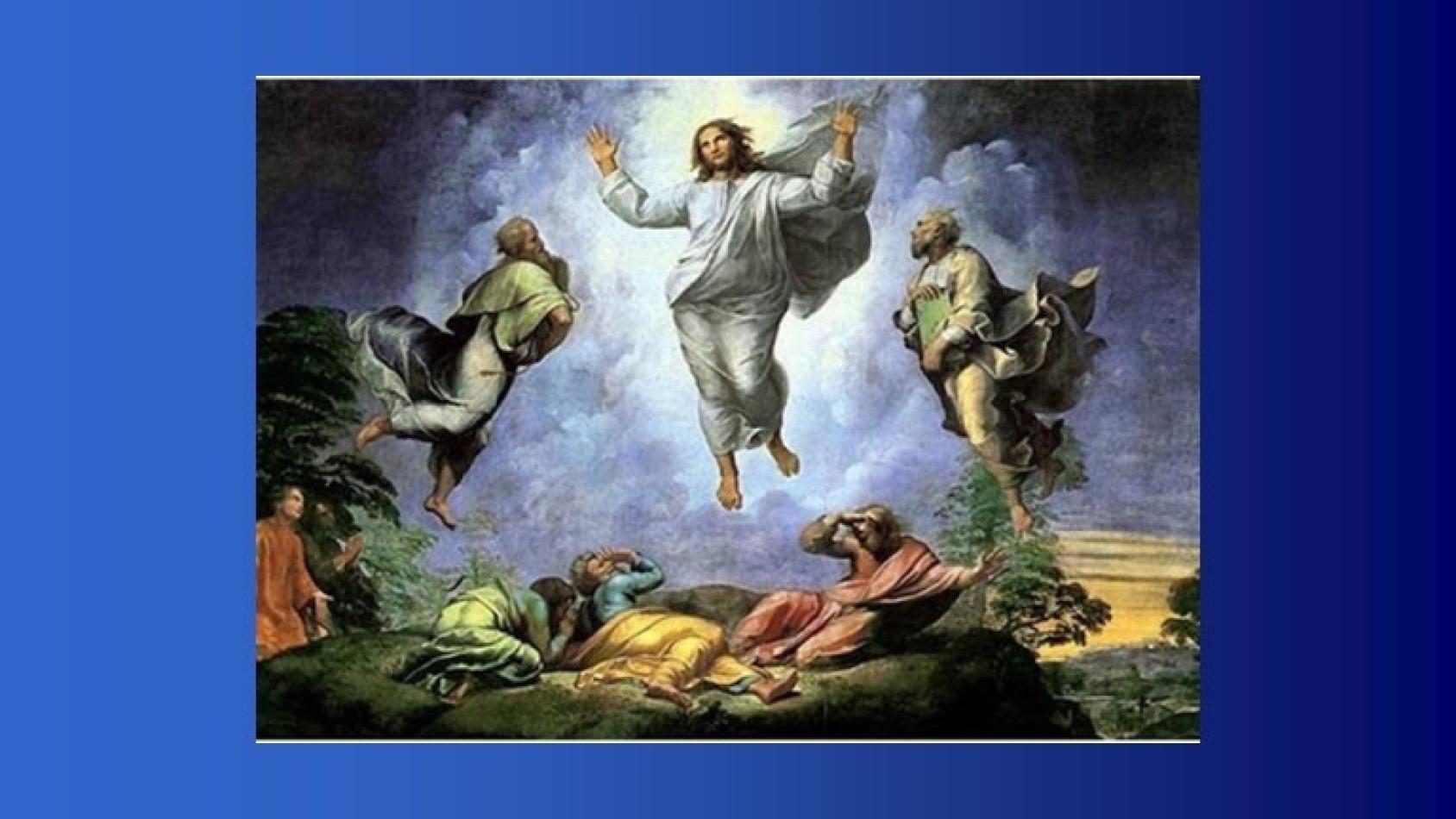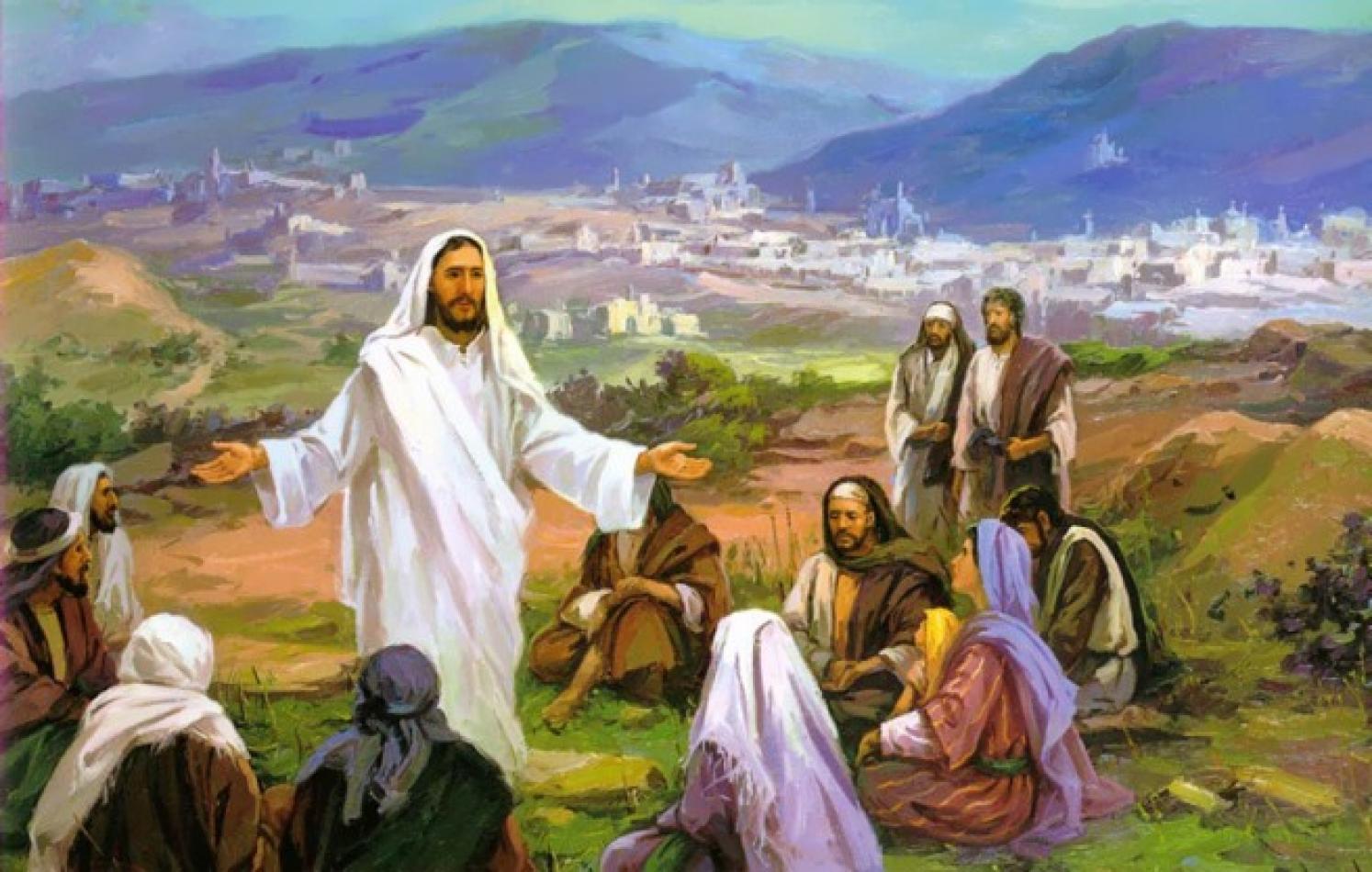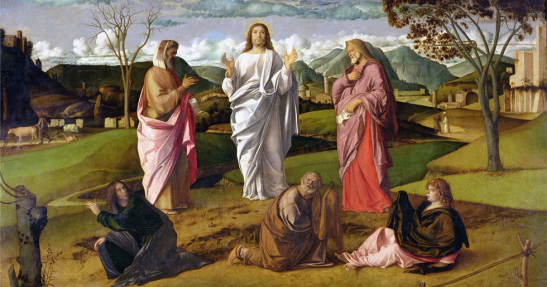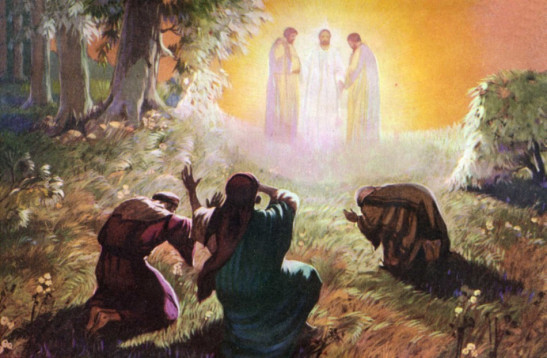Daniel Comboni
Comboni Missionaries
Institutional area
Other links
Newsletter
Today the Gospel presents the Transfiguration. It is the second stage of the Lenten journey: the first was the temptation in the desert, last Sunday; the second, the Transfiguration. Jesus “took with him Peter and James and John his brother, and led them up a high mountain apart” (Mt 17:1).
Ascent and descent
Genesis 12:1-4a; 2 Timothy 1:8b-10; Matthew 17:1-9
Today the Gospel presents the Transfiguration. It is the second stage of the Lenten journey: the first was the temptation in the desert, last Sunday; the second, the Transfiguration. Jesus “took with him Peter and James and John his brother, and led them up a high mountain apart” (Mt 17:1). The mountain in the Bible represents a place close to God and an intimate encounter with Him, a place of prayer where one stands in the presence of the Lord. There up on the mount, Jesus is revealed to the three disciples as transfigured, luminescent and most beautiful. And then Moses and Elijah appear and converse with Him. His face is so resplendent and his robes so white that Peter, awe-struck, wishes to stay there, as if to stop time. Suddenly from on high the voice of the Father resounds proclaiming Jesus to be his most beloved Son, saying “listen to him” (v. 5). This word is important! Our Father said this to these Apostles, and says it to us as well: “listen to Jesus, because he is my beloved Son”. This week let us keep this word in our minds and in our hearts: “listen to Jesus!”. And the Pope is not saying this, God the Father says it to everyone: to me, to you, to everyone, all people! It is like an aid for going forward on the path of Lent. “Listen to Jesus!”. Don’t forget.
This invitation from the Father is very important. We, the disciples of Jesus, are called to be people who listen to his voice and take his words seriously. To listen to Jesus, we must be close to him, to follow him, like the crowd in the Gospel who chase him through the streets of Palestine. Jesus did not have a teaching post or a fixed pulpit, he was an itinerant teacher, who proposed his teachings, teachings given to him by the Father, along the streets, covering distances that were not always predictable or easy. Follow Jesus in order to listen to him. But also let us listen to Jesus in his written Word, in the Gospel. I pose a question to you: do you read a passage of the Gospel everyday? Yes, no… yes, no… half of the time … some yes, some no. It is important! Do you read the Gospel? It is so good; it is a good thing to have a small book of the Gospel, a little one, and to carry in our pocket or in our purse and read a little passage in whatever moment presents itself during the day. In any given moment of the day I take the Gospel from my pocket and I read something, a short passage. Jesus is there and he speaks to us in the Gospel! Ponder this. It’s not difficult, nor is it necessary to have all four books: one of the Gospels, a small one, with us. Let the Gospel be with us always, because it is the Word of Jesus in order for us to be able to listen to him.
From the event of the Transfiguration I would like to take two significant elements that can be summed up in two words: ascent and descent. We all need to go apart, to ascend the mountain in a space of silence, to find ourselves and better perceive the voice of the Lord. This we do in prayer. But we cannot stay there! Encounter with God in prayer inspires us anew to “descend the mountain” and return to the plain where we meet many brothers weighed down by fatigue, sickness, injustice, ignorance, poverty both material and spiritual. To these brothers in difficulty, we are called to bear the fruit of that experience with God, by sharing the grace we have received. And this is curious. When we hear the Word of Jesus, when we listen to the Word of Jesus and carry it in our heart, this Word grows. Do you know how it grows? By giving it to the other! The Word of Christ grows in us when we proclaim it, when we give it to others! And this is what Christian life is. It is a mission for the whole Church, for all the baptized, for us all: listen to Jesus and offer him to others. Do not forget: this week listen to Jesus! And think about the matter of the Gospel: will you? Will you do this? Then next Sunday you tell me if you have done this: that you have a little book of the Gospel in your pocket or in your purse to read in little stages throughout the day.
And now let us turn to our Mother Mary, and entrust ourselves to her guidance in pursuing with faith and generosity this path of Lent, learning a little more how to “ascend” with prayer and listen to Jesus and to “descend” with brotherly love, proclaiming Jesus.
Pope Francis
Lent 2014
Falling in Love With Christ
Why are faith and religious practice in decline and why do they not seem to constitute, at least not for most people, the point of reference in life?
Why the boredom, the weariness, the struggle for believers in performing their duties? Why do young people not feel attracted to the faith? In sum, why this dullness and this lack of joy among the believers in Christ? The event of Christ’s transfiguration helps us to answer these questions.
What did the transfiguration mean for the three disciples who were present? Up until now they knew Jesus only in his external appearance: He was not a man different from others; they knew where he came from, his habits, the timber of his voice. Now they know another Jesus, the true Jesus, the one who cannot be seen with the eyes of ordinary life, in the normal light of the sun; what they now know of him is the fruit of a sudden revelation, of a change, of a gift.
Because things change for us too, as they changed for the three disciples on Tabor; something needs to happen in our lives similar to what happens when a young man and woman fall in love. In falling in love with someone, the beloved, who before was one of many, or perhaps unknown, suddenly becomes the only one, the sole person in the world who interests us. Everything else is left behind and becomes a kind of neutral background. One is not able to think of anything else. A very real transfiguration takes place. The person loved comes to be seen as a luminous aura. Everything about her is beautiful, even the defects. One feels unworthy of her. True love generates humility.
Something concrete also changes in one’s own habits. I have known young people whose parents could not get them out of bed in the morning to go to school; or they neglected their studies and did no graduate. Then, once they fall in love with someone and enter a serious relationship, they jump out of bed in the morning, they are impatient to finish school, if they have a job, they hold onto it. What has happened? Nothing, it is just that what they were forced to do before they now do because of an attraction. And attraction allows one to do things that force cannot make one do; it puts wings on one’s feet. “Everyone,” the poet Ovid said, “is attracted by the object of his pleasure.”
Something of the kind must happen once in our lives for us to be true, convinced Christians, and overjoyed to be so. Some say, “But the young man or young woman is seen and touched!”
I answer: We see and touch Jesus too, but with different eyes and different hands — those of the heart, of faith. He is risen and is alive. He is a concrete being, not an abstraction, for those who experience and know him.
Indeed, with Jesus things go even better. In human love we deceive ourselves, we attribute gifts to the beloved that she does not have and with time we are often forced to change our mind about her. In the case of Jesus, the more one knows him and is together with him, the more one discovers new reasons to be in love with him and is confirmed in one’s choice.
This does not mean that with Christ too we must wait for the classic “lightning bolt” of love. If a young man or woman stayed at home all the time without seeing anyone, nothing would ever happen in his or her life. To fall in love you have to spend time with people!
If one is convinced, or simply begins to think that it is good and worthwhile to know Jesus Christ in this other, transfigured, way, then one must spend time with him, to read his writings. The Gospel is his love letter! It is there that he reveals himself, where he “transfigures” himself. His house is the Church: It is there that one meets him.
[Translation by Joseph G. Trabbic]
Fr. Raniero Cantalamessa
February 17, 2008
http://www.zenit.org






